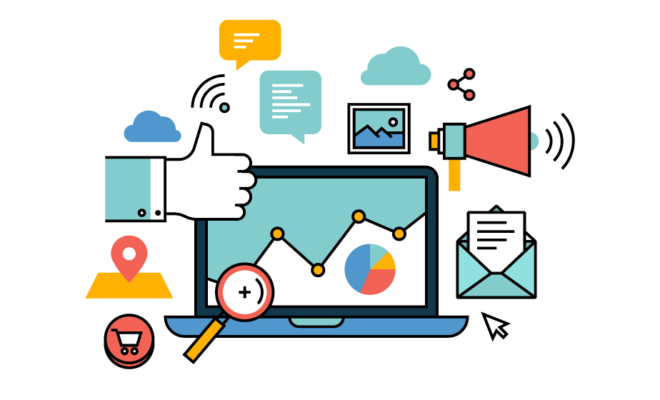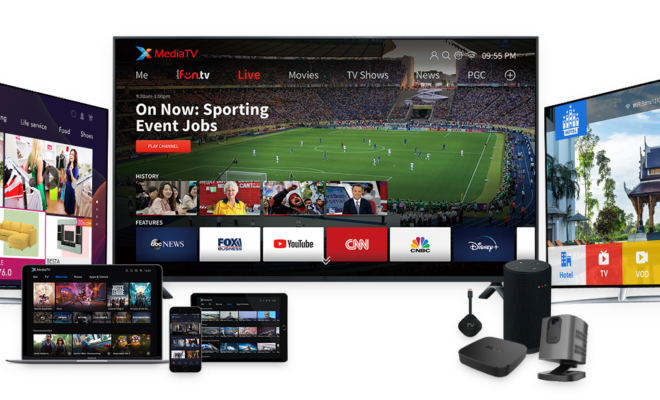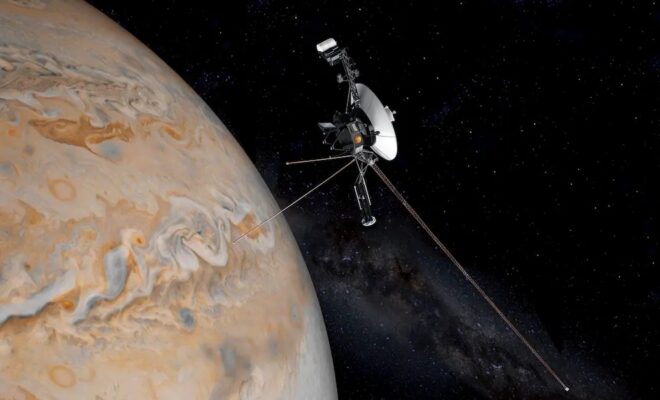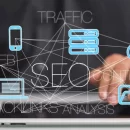4 B2B Marketing Trends for 2023 That You Can’t Miss

B2B marketing has undergone significant changes over the years, and it continues to evolve at a rapid pace. In 2023, we can expect to see some exciting new trends that will shape the future of B2B marketing. In this blog, we will discuss four B2B marketing trends that you can’t afford to miss in 2023. From increased personalization to the rise of account-based marketing (ABM), to greater integration of AI and machine learning, to the emergence of immersive technologies, these trends will be the key drivers of success in the B2B marketing landscape.
Trend #1: Increased Focus on Personalization
Personalization has become a buzzword in marketing, and for a good reason. By personalizing the customer experience, businesses can establish deeper connections with their customers, improve engagement, and drive more revenue. In B2B marketing, personalization involves creating tailored messages, content, and offers for each individual customer or prospect.
There are several technologies and strategies involved in personalization, including data analysis, customer segmentation, email marketing, and dynamic content. With the help of these tools, B2B marketers can analyze customer behavior, preferences, and interests to create customized experiences that resonate with their target audience.
For example, a B2B software company could use customer data to create targeted email campaigns that promote their products based on the customer’s specific needs and interests. By providing relevant information and offers, the company can improve their chances of generating leads and driving conversions.
Successful B2B companies have already started implementing personalization in their marketing efforts. For example, Adobe has been using machine learning algorithms to personalize their website experience, resulting in a 25% increase in conversion rates.
Trend #2: Rise of Account-Based Marketing (ABM)
Account-based marketing (ABM) is a strategic approach to B2B marketing that focuses on targeting individual accounts or companies, rather than targeting a broad audience. ABM involves creating customized campaigns, content, and offers that are tailored to the specific needs and interests of each target account.
The rise of ABM is due to its effectiveness in generating high-quality leads and driving revenue growth. By targeting specific accounts, B2B marketers can create more meaningful relationships with their target audience, resulting in higher conversion rates and customer retention.
ABM is not without its challenges, however. One of the main challenges is the need for a highly personalized and customized approach, which can be time-consuming and resource-intensive. Another challenge is the need to align sales and marketing teams to ensure a seamless customer experience.
Despite these challenges, ABM has proven to be a successful strategy for many B2B companies. For example, Terminus, a leading ABM platform, has helped companies like Salesforce and Thomson Reuters generate significant revenue growth through targeted account-based campaigns.
Trend #3: Greater Integration of AI and Machine Learning
Artificial and machine intelligence (AI) and machine learning are transforming many industries, and B2B marketing is no exception. With the help of AI and machine learning, B2B marketers can analyze vast amounts of data to generate insights and predict customer behavior.
AI and machine learning can be used in several ways in B2B marketing, including lead generation, customer segmentation, content creation, and predictive analytics. By leveraging these technologies, B2B marketers can create more targeted and effective campaigns, resulting in higher conversion rates and customer satisfaction.
For example, IBM Watson Marketing uses machine learning to analyze customer behavior and generate personalized recommendations for their customers. By providing relevant content and offers, IBM has been able to increase engagement and drive more revenue for their business.
Trend #4: Emergence of Immersive Technologies
Immersive technologies, such as virtual reality (VR) and augmented reality (AR), are becoming more prevalent in B2B marketing. These technologies allow B2B companies to create engaging and interactive experiences for their customers, resulting in greater brand awareness and customer loyalty.
Immersive technologies can be used in several ways in B2B marketing, including product demonstrations, training and education, and virtual events. For example, a B2B software company could use VR to create a virtual training program for their customers, allowing them to learn about the product in an interactive and engaging way.
The use of immersive technologies is still in its early stages in B2B marketing, but it has the potential to transform the industry. As these technologies become more accessible and affordable, we can expect to see more B2B companies incorporating them into their marketing strategies.
Conclusion
The B2B marketing landscape is constantly evolving, and it’s essential to stay ahead of the curve to succeed in the industry. In 2023, we can expect to see several exciting trends that will shape the future of B2B marketing. From increased personalization to the rise of ABM, to greater integration of AI and machine learning, to the emergence of immersive technologies, these trends will be the key drivers of success for B2B Marketing agency.
To stay ahead of the competition, B2B marketers must be willing to adapt and embrace these trends. By incorporating personalization, ABM, AI and machine learning, and immersive technologies into their marketing strategies, B2B companies can create more meaningful relationships with their customers and drive more revenue for their business.
FAQs
Q: What is a webinar marketing agency, and how can they help my B2B business?
A webinar marketing agency is a company that specializes in creating and promoting webinars for B2B businesses. These agencies can help your business generate leads, promote your brand, and establish thought leadership in your industry through webinars. They have the expertise and resources to create engaging and informative webinars that resonate with your target audience.
Q: How can I incorporate personalization into my B2B marketing strategy?
To incorporate personalization into your B2B marketing strategy, you need to collect and analyze customer data to understand their behavior, preferences, and interests. Once you have this information, you can create customized messages, content, and offers that resonate with your target audience. You can use tools like email marketing, dynamic content, and customer segmentation to deliver personalized experiences to your customers.
Q: What are the benefits of using AI and machine learning in B2B marketing?
AI and machine learning can help B2B marketers analyze vast amounts of data to generate insights and predict customer behavior. By leveraging these technologies, B2B marketers can create more targeted and effective campaigns, resulting in higher conversion rates and customer satisfaction. AI and machine learning can also help automate repetitive tasks, allowing marketers to focus on more strategic initiatives.
Q: How can immersive technologies be used in B2B marketing?
Immersive technologies like VR and AR can be used in several ways in B2B marketing, including product demonstrations, training and education, and virtual events. These technologies allow B2B companies to create engaging and interactive experiences for their customers, resulting in greater brand awareness and customer loyalty. As these technologies become more accessible and affordable, we can expect to see more B2B companies incorporating them into their marketing strategies.












